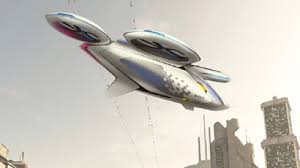
Breaking News
 Pam Bondi says that if we prosecute everybody in the Epstein Files, the whole system will collapse
Pam Bondi says that if we prosecute everybody in the Epstein Files, the whole system will collapse
 Dr Pollan at Harvard has cured schizophrenia using keto diet
Dr Pollan at Harvard has cured schizophrenia using keto diet
 We are winning. Big Pharma is finding it too difficult to get new vaccines approved under Trump
We are winning. Big Pharma is finding it too difficult to get new vaccines approved under Trump
 Abortion drugs discovered in Bill Gates' vaccines
Abortion drugs discovered in Bill Gates' vaccines
Top Tech News
 Drone-launching underwater drone hitches a ride on ship and sub hulls
Drone-launching underwater drone hitches a ride on ship and sub hulls
 Humanoid Robots Get "Brains" As Dual-Use Fears Mount
Humanoid Robots Get "Brains" As Dual-Use Fears Mount
 SpaceX Authorized to Increase High Speed Internet Download Speeds 5X Through 2026
SpaceX Authorized to Increase High Speed Internet Download Speeds 5X Through 2026
 Space AI is the Key to the Technological Singularity
Space AI is the Key to the Technological Singularity
 Velocitor X-1 eVTOL could be beating the traffic in just a year
Velocitor X-1 eVTOL could be beating the traffic in just a year
 Starlink smasher? China claims world's best high-powered microwave weapon
Starlink smasher? China claims world's best high-powered microwave weapon
 Wood scraps turn 'useless' desert sand into concrete
Wood scraps turn 'useless' desert sand into concrete
 Let's Do a Detailed Review of Zorin -- Is This Good for Ex-Windows Users?
Let's Do a Detailed Review of Zorin -- Is This Good for Ex-Windows Users?
 The World's First Sodium-Ion Battery EV Is A Winter Range Monster
The World's First Sodium-Ion Battery EV Is A Winter Range Monster
 China's CATL 5C Battery Breakthrough will Make Most Combustion Engine Vehicles OBSOLETE
China's CATL 5C Battery Breakthrough will Make Most Combustion Engine Vehicles OBSOLETE
This Company Is Building Flying Autonomous Taxis That Carry Passengers Over Traffic

Have you ever sat in your car during rush hour and thought, "I wish I could just fly over this traffic and get to my destination faster!"? If so, you're not alone. This exact thought is what inspired the concept of "Project Vahana", a fleet of on-demand autonomous drones built to carry passengers through the skies.
Autoblog relays that the aeronautics company Airbus recently announced its Vahana vision, and is optimistic about testing the flying taxis as early as 2017.
If the giant taxis are a success, passengers will be able to use an app and book passage on the craft to travel to a local helipad in their city. Then, they'd board a CityAirbus drone alongside other travels.
The company says commuters will be "whisked away to their destination" by the self-driving taxis. Luggage, however, would be transported by a separate service.

Credit: Airbus
Another intriguing aspect of this concept is that the Airbus taxis would be about the same price as riding in a regular taxi to one's destination. Considering they're also likely to be faster than a taxi, what would stop one from taking the flying drone instead?
Because humans have not yet perfected self-driving cars, it will still likely be a few years until the giant, floating drones are installed in major cities. However, the idea is intriguing and seems more than likely that someday, a form of floating taxi could be the preferred method of transportation in cities.



